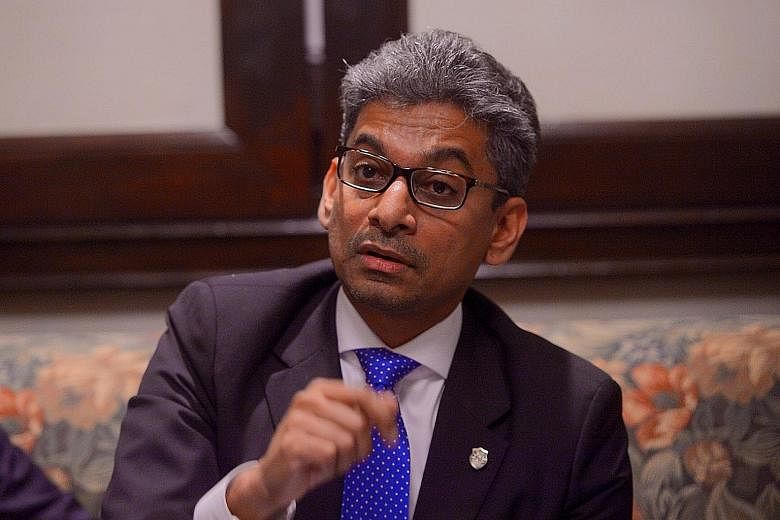Ties between the Malaysian government and the country's body of lawyers are set to worsen as the Najib administration wants to make changes to the Legal Profession Act that are widely seen as threatening the Malaysian Bar's independence and an attempt to muzzle criticisms.
Under amendments to be tabled at the next Parliament sitting in October, the Malaysian Bar said, the government will have the right to appoint two members to be part of the body that leads the legal profession's group, and raise the number of members needed to call for meetings.
The planned changes would also disallow existing office bearers from contesting again for any position, and abolish postal ballots for election of Bar Council members.
"This is drastic," said Mr Steven Thiru, president of the Malaysian Bar. "No third party can come and tell you how you should organise your house."
He called the proposal a "complete overhaul", and said its members did not seek the amendments.
The move to raise the general meeting's quota to some 4,000 members from 500 now, might make it impossible for the Malaysian Bar to ever meet. Removing postal ballots would reduce the breadth of members' voice in its elections, Mr Thiru said.
Ties between the Malaysian Bar and the Malaysian government have been strained for years, with the group often making statements deemed as political and anti-government on one side, and as necessary for justice and governance by the other.
At the Malaysian Bar's annual general meeting in March, it approved a motion to call for the resignation of Attorney-General Mohamed Apandi Ali over his handling of cases involving troubled state fund 1Malaysia Development Bhd.
Responding to this, the de-facto Law Minister Nancy Shukri said in April that the government will study a lawmaker's proposal to make the A-G automatically chair the Malaysian Bar.
Lawmaker Nasrun Mansur from the ruling Barisan Nasional had said in Parliament then: "The Bar must come back to its original objective as to why it was formed, to look after the welfare of lawyers. They should not get involved in politics as it is inappropriate."
The Malaysian Bar has recently voiced objection over a travel ban imposed by the government on individuals who have criticised the government.
It has also made calls for the government to repeal the Sedition Act and to introduce an independent commission to investigate police abuses.
The timing of the government's proposals raise question marks over its intention, some lawyers say.
"This rings alarm bells. It is an attempt to control the Malaysian Bar," said lawyer R. Sivarasa, a vice-president of opposition Parti Keadilan Rakyat.
The Malaysian Volunteer Lawyers Association, helmed by a former Umno leader, proposed an alternative body last year to run in tandem with the Malaysian Bar after allegations that the group was not acting as an independent body by supporting opposition parties.
Correction note: An earlier version of the story stated that Mr Steven Thiru is president of the Malaysian Bar Council. This is incorrect. It should be the Malaysian Bar.
It was also stated that the planned changes to the Legal Profession Act would abolish postal ballots for the election of office bearers. This is incorrect. The changes would abolish postal ballots for the election of Bar Council members.
We are sorry for the errors.

